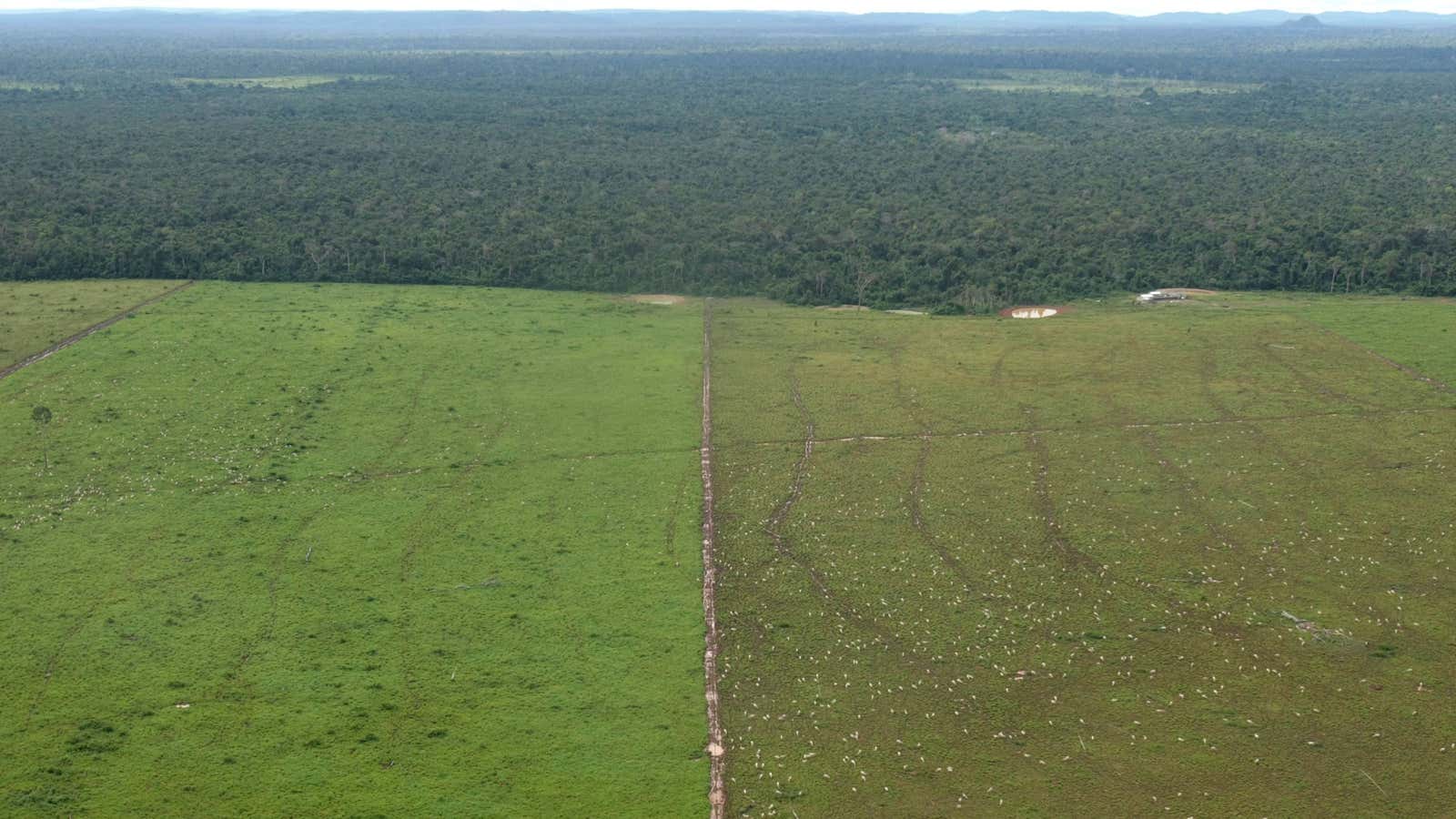A report by the World Wildlife Fund released today charges humanity with wiping out 60% of animal species on average since 1970 through reckless habitat destruction and “exploding human consumption.”
The Living Planet Report is compiled for the WWF every two years with indicators from the Zoological Society of London, and tracks almost 17,000 populations of 4,000 vertebrate species to establish “trends in global biodiversity and the health of the planet.” This year’s report is one shocking statistic after another, including our role in the loss of 83% of freshwater wildlife since 1970, 20% of the Amazon, and half of the world’s shallow-water corals.
“Nature, underpinned by biodiversity, provides a wealth of services which form the building blocks of modern society,” the report states. “But both nature and biodiversity are disappearing at an alarming rate.”
The report has been criticized in the past for being too broad and glossing over important details about species loss. One of its critics, conservation scientist Stuart Pimm of Duke University, says there is too much uncertainty and variability across regions to distill the state of the world into one number. The report also “depresses people to no end, and suggests there is no hope,” he told National Geographic in 2016.
This year’s report isn’t all doom and gloom. It cited population increases of pandas, dolphins, and gorillas as positive signs of environmental work in action, and credited legal frameworks like the US Endangered Species Act with helping listed species avoid extinction. (The Trump administration has recently proposed rolling back several aspects of the law). The report calls for a “global deal for nature,” akin to Paris Climate Agreement, to set more ambitious conservation goals.
“We are the first generation that has a clear picture of the value of nature and the grave situation we are facing,” the report states. “We may also be the last generation that can do something about it.”
This story was updated to clarify that the report’s calculation was based on an average.
